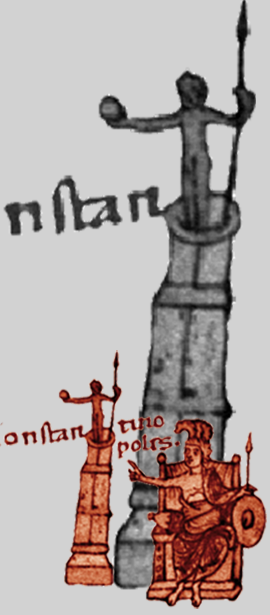HUNAYNNET
Transmission of Classical Scientific and Philosophical Literature from Greek into Syriac and Arabic (Erc-Starting-Grant ID 679083, 2016-2021)
The general objective of the project HUNAYNNET is to study the late antique and medieval translations into Syriac and Arabic of ancient Greek philosophical and scientific works. It is well known that medieval Europe received ancient Greek science and philosophy through Latin translations many of which were prepared on the basis of the Arabic and Hebrew versions of those works. It is perhaps less well-known that the Arabic translations, which appeared from the 8th to the 10th centuries, were made to a great extent either by means of or directly from Syriac versions of these Greek treatises. Greek scientific and philosophical literature as well as its Latin translations has been the object of scientific research for several centuries. The Arabic versions of these works have been published and actively studied over the last decades, and these efforts have yielded considerable results. The Syriac translations of Greek science and philosophy, on the contrary, remain practically unstudied and virtually neglected in modern research. Although it is generally accepted that the Syriac translations constitute a bridge between the Greek Hellenistic culture of Late Antiquity and their reception in medieval Islam, their actual contribution to areas such as the creation of methods for the translation of scientific literature into Semitic idiom have not so far been systematically investigated. This is a problematic situation since without taking into account translations into Syriac one cannot study properly the transmission of Greek heritage through Late Antiquity and the Middle Ages. Thus, the Syriac tradition remains the “missing link” in the transmission of Greek texts to the Latin West.
Named after Ḥunayn ibn Isḥāq (ca. 808–873), the central and most prominent figure in the history of scientific translations from Greek into Syriac and Arabic, the online corpus HUNAYNNET will serve as an open-access platform for research into the transmission of Greek scientific and philosophical literature in Syriac and Arabic. HUNAYNNET will present an indispensable, but until now missing, instrument for filling a large gap in our knowledge of the transmission of Greek science. The web-portal will be designed not only for specialists in the field, but also for a broad spectrum of scholars who are interested in the history of culture and philosophy and in translation studies, more generally.
The principal aim is to create an online aligned corpus of Greek texts and their Syriac and Arabic translations which will serve as a platform for multi-purpose study in the history of science, medicine and philosophy, the transmission of scientific vocabulary, and translation techniques.
The ambition of HUNAYNNET is to contribute to the study of both western and eastern pre-modern texts and language through computational tools. In cooperation with other projects, we aspire to improve the presence of the involved languages in the digital humanities.
Publications
- Arnzen, R., Arzhanov, Y., Bamballi, N., Ceplo, S., Kessel, G., ‘Coding and Encoding: Towards a New Approach to the Study of Syriac and Arabic Translations of Greek Scientific and Philosophical Texts’. Comparative Oriental Manuscript Studies Bulletin 4:2 (2019), pp. 205–214.
- Kessel, G., ‘Syriac Medicine‘, in King D. (ed.), The Syriac World. London and New York: Routledge: 2019, pp. 438–459.
- Kessel, G., Bamballi, N., ‘Field Notes on Syriac Manuscripts II: A Philosophical Manuscript olim Mosul 35 Rediscovered’. Hugoye: Journal of Syriac Studies 21.1 (2018), pp. 21-42.
- Kessel, G., ‘Field Notes on Syriac Manuscripts I: Two Medical Manuscripts Digitised by the Hill Museum & Manuscript Library’. Hugoye: Journal of Syriac Studies 20.2 (2017) 419-434.
- Kessel., G., ‘A Syriac Medical Kunnāšā of Īšōʿ bar ʿAlī (9th c.): First Soundings’. Intellectual History of the Islamicate World 5 (2017) 228–251.



Contact
Grigory Kessel (Principal Investigator)
Yury Arzhanov (Researcher, until 2021)
Nicolás Bamballi (Researcher, until 2021)
Slavomír Čéplö (Researcher, until 2021)
Paraskevi Sykopetritou (project coordination, until 2021)

